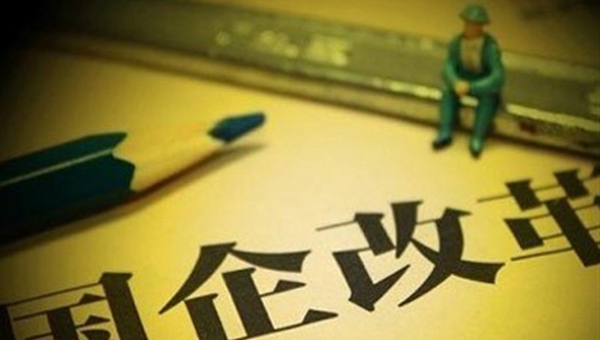
CHINA’S major state-owned enterprises will become
corporations by the end of the year in a bid to increase their
efficiency, it was announced yesterday.
The reform targets SOEs supervised by the central government but excludes financial and cultural firms.
China has been saying for years it would take steps to reform the centrally run businesses, which dominate crucial industries ranging from power and steel to aviation.
They should aim to become “limited companies or corporations” by the end of the year, according to a statement on the State Council’s website. The change will help “build a modern enterprise system and improve the market-oriented management mechanism,” it said.
The announcement follows comments earlier this month by President Xi Jinping calling for authorities to deepen SOE reform by “focusing on the establishment of a modern corporate governance system.”
He described SOEs as an “important foundation for national development” but said overhauling them was important to enhance their “vitality, competitiveness and risk resistance.”
SOEs once played a key role in the China’s economy, but are seen as being bloated in size and inefficient while having significant resources, such as land and loans.
With a shrinking share of economic output, they still control key sectors of the economy, such as energy and telecommunications. Their outdated corporate structure has become one of the main reasons behind their low efficiency.
China has said market forces should play a decisive role in allocating resources and declared SOE reform a priority.
Corporate governance reform is one of the key tasks of SOE reform.
Under the State Council plan, the reform will proceed with disciplined operations when handling SOE ownership structure and corporate debts.
For central SOEs that become wholly state-funded enterprises, registered assets will be calculated according to the net asset value of the previous year.
Those that become enterprises with diverse equity structures will go through specific procedures, including asset verification, appraisal and financial audit.
Central SOEs will be granted support in the reform, including management of allotted land, tax benefits, registration of changes, and takeover of business license qualifications. In addition, mixed-ownership reform, which diversifies the shareholding structure of SOEs, will take off in the second half of the year. It will introduce private or foreign investment, with oil and gas companies at the forefront.
To make SOEs leaner and healthier, the State-owned Assets Supervision and Administration Commission plans to reduce the number of central SOEs to under 100, with coal, steel and heavy equipment manufacturing industries in the spotlight.
“Reducing the number itself is not the goal of restructuring. We care more about what the reforms will actually bring,” said Peng Huagang, the commission’s deputy secretary-general. “We are not seeking abrupt change. We look for a chain reaction.”
China’s state-owned companies reported steady profit growth in the first half of the year, totaling 1.41 trillion yuan (US$209 billion), up 24.3 percent year on year, according to the Ministry of Finance.
Coal, petroleum and petrochemicals, and transport sectors posted strong annual growth while sectors such as electricity suffered a fall in profits.
Some 48 central SOEs were on the Fortune Global 500 list this year, with the State Grid and oil giant Sinopec second and third.
